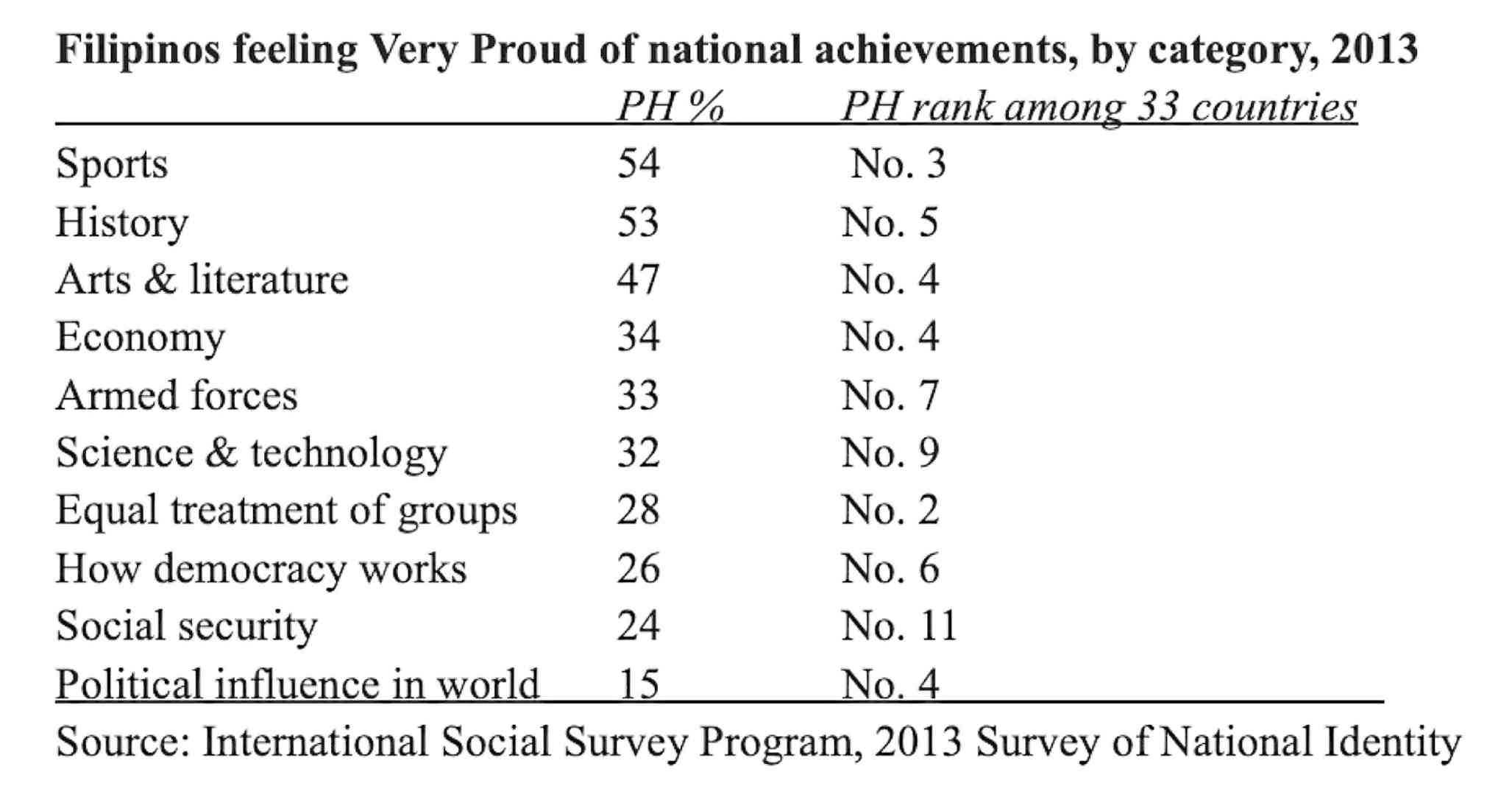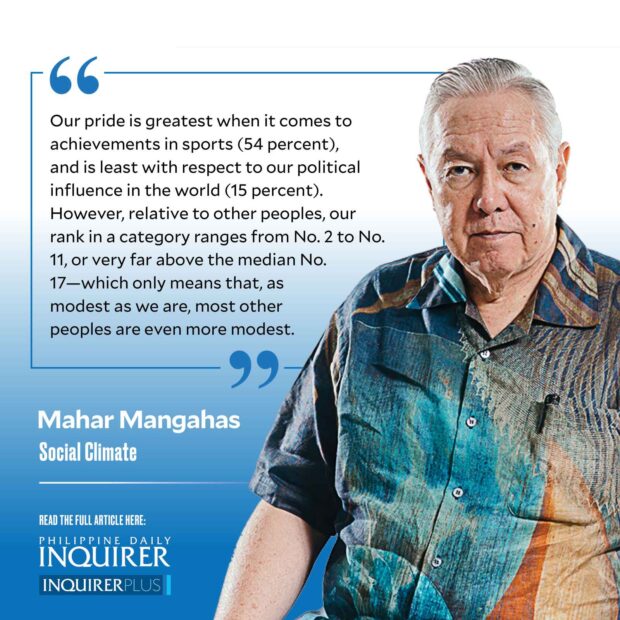No cultural deficiency
The phrase, “A damaged culture,” which first appeared in 1987 in The Atlantic magazine, is readily trotted out by lazy writers when things go wrong. But characterizing the Filipino people by it is wrong. It merely sounds cute.
A 1988 survey test. I personally examined the damaged culture hypothesis in an SWS Metro Manila survey of 300 adults (6-point error margin), by testing some agree-disagree statements, starting with: “Most Filipinos are capable of breaking the law for the benefit of their friends and relatives.”
Article continues after this advertisementThis found a split opinion of 38 percent agree versus 37 percent disagree, with others on the fence. The notable thing, however, was that the score of the upper class (“AB” in market research parlance) was 45 percent agree versus 27 percent disagree.
To the statement, “Filipinos are used to being commanded by high officials and so they just follow without question,” the agree-disagree score was 29-47, i.e., contradicting the damaged culture idea. Yet the AB group scored 39-27, i.e., favoring it.
To the statement, “Filipinos easily sacrifice their personal benefit for the sake of the common good,” the agree-disagree score was 51-22, i.e., definitely rejecting the damaged culture idea. Yet the AB group scored 30-39, again favoring it.
Article continues after this advertisementI wrote: “It seems to me that the upper class considers the term ‘Filipinos’ as referring not to them, but to the common people. Imagine a rich person thinking: Yes, there are many common people who put family above the law, but not me. It’s them who won’t sacrifice for the common good, not me. Yes, they obey blindly—I know, for I’m the one who gives the orders. The middle class (C) and the lower classes, on the other hand, seem to be identifying themselves as the Filipinos in the survey statements, and replying: No, we’re not like that; of course, we know the difference between right and wrong.” (“The Filipino penchant for self-bashing,” in my book, “The Philippine Social Climate,” 1994; originally in Manila Chronicle, 7/22/88.)
An internet search for “A damaged culture” finds a gratuitous intro: “Our Asia correspondent [i.e. James Fallows] offers a dark view of a nation [i.e. the Philippines] not only without nationalism but also without much national pride.” Wow. Not only evidence-free but contrary to the evidence!
A cross-country survey of nationalism. In 2013, the International Social Survey Program’s topic was national identity. The Philippines was one of the 33 countries that looked into eight attributes of identity: birthplace, speaking the official language, citizenship, ancestry, long residency, belonging to the majority religion, feeling-a-true-national, and respecting the laws.
With respect to the first six attributes, we Filipinos have the highest proportion calling them very important. For the other two, we rank second in rating feeling-a-true-national that way (after Georgia), and fifth in rating respecting the laws that way (after Norway, France, Sweden and Denmark). (See “Who is ‘truly Filipino?” 12/22/18.)
At least 65 percent of Filipinos say that ALL the eight criteria are very important for being a “true Filipino” (“Our purist sense of identity,” 5/1/21). In contrast, only four criteria matter as much to Americans: speaking English, being a US citizen, respecting the laws, and feeling a true American; while in Spain, the sole very important criterion is speaking Spanish.
A cross-country survey of national pride. The table here compares the Philippines (PH) to 32 other countries, according to the proportion very proud of national accomplishments in given categories (“Filipino feelings of pride,” 12/29/18).
Our pride is greatest when it comes to achievements in sports (54 percent), and is least with respect to our political influence in the world (15 percent). However, relative to other peoples, our rank in a category ranges from No. 2 to No. 11, or very far above the median No. 17—which only means that, as modest as we are, most other peoples are even more modest.
We Filipinos are a very mixed bag of individuals. Like other peoples, we are neither all saints nor all sinners. Let us each do what we can to emulate the former, and castigate the latter. Let us be guided by science, and wary of propaganda.
——————
Contact: mahar.mangahas@sws.org.ph


















